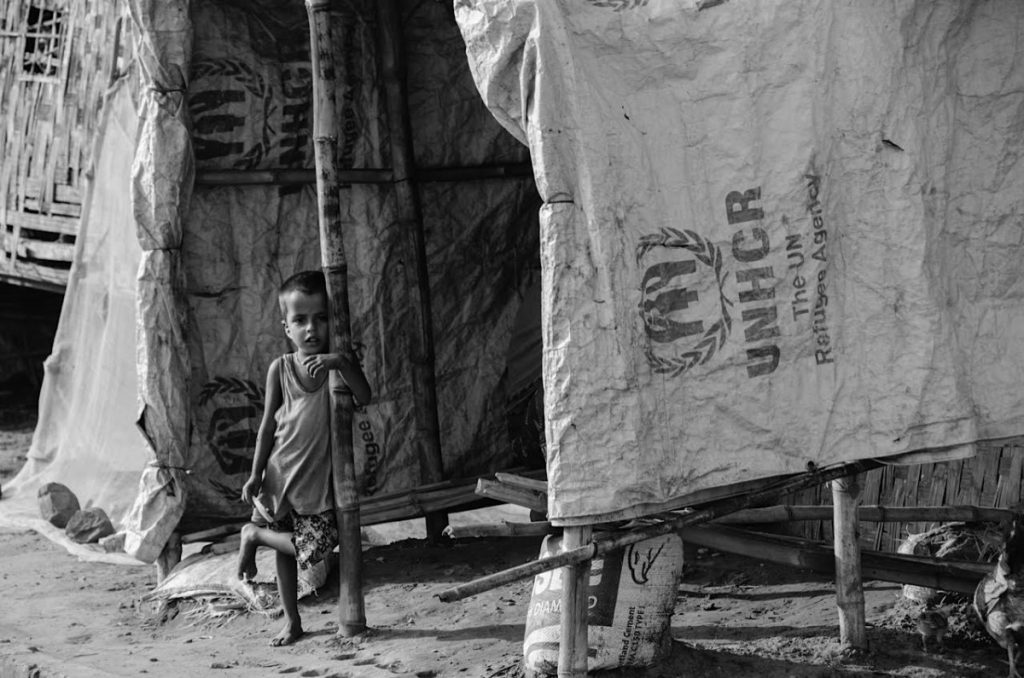Memo #372
By: Ian Mcdonald – ian.mcdonald [at] alumni.ubc.ca
 Although media depicted the November 2015 elections in Myanmar as a chance for reform in the country, the actual changes have been questionable, especially for the Muslim Rohingya in the westernmost state, Rakhine. So what have the election results meant for Muslims in Myanmar?
Although media depicted the November 2015 elections in Myanmar as a chance for reform in the country, the actual changes have been questionable, especially for the Muslim Rohingya in the westernmost state, Rakhine. So what have the election results meant for Muslims in Myanmar?
The answer is unfortunately, not much, at least so far. The main reason is widespread Buddhist nationalism, currently represented by the Buddhist organization known as Ma Ba Tha. Last year Ma Ba Tha played a large role in the disenfranchisement of Muslims, and promoted four race and religion laws that have been widely condemned by the international community as discriminatory toward Muslims.
As a result of Ma Ba Tha’s pressure, this is the first time in the country’s history with no Muslim representation in parliament. It is hard to locate a period in Myanmar’s history where discrimination against the Rohingya was worse than it has been in the last five years. The last elections were the first in modern history where Rohingya were not allowed to field candidates, nor were they allowed to vote. The violence against the Rohingya has increased over the period, and the temporary UN camps in which many of the internally displaced Rohingya live are permanent shelters in terrible conditions.
Ma Ba Tha was widely associated with the former military government, and while they did not field any candidates directly, they did encourage voters not to vote for Aung San Suu Kyi’s National League for Democracy (NLD). Many thought that the influence of Ma Ba Tha would wane under the new government, but leaders of the group such as U Wirathu and U Parmaukkha have vowed to continue the movement and watch for any signs of NLD efforts to overturn the four race and religion laws.
If discrimination against Muslims is going to end, it will require a shift in mainstream perception of the interfaith narrative combined with legislative tactics from the NLD to outmaneuver Buddhist nationalists. For Muslims, the hope lies with Aung San Suu Kyi– as leader of the ruling NLD, the national icon will have to clarify statements in support of the 1982 Citizenship Law, or dismissing minority rights as not serious – and international attention – the United Nations has requested action on the situation within 100 days of the new government’s first day in office.
About the Author:
Ian McDonald is a post- graduate research fellow at the Asia Pacific Foundation of Canada. Before joining the APFC, Ian served as an intern with the Canadian embassy in Myanmar.

A young boy stands outside an ad-hoc shelter constructed from bamboo and a tarpaulin provided by the UN refugee agency, in Say Tha Mar Gyi IDP camp, near Sittwe, Myanmar, on May 26, 2015. (Credit: Alex Bookbinder)
Links
- Matthew J. Walton. “Monks in Politics, Monks in the World: Buddhist Activism in Contemporary Myanmar.” Social Research: An International Quarterly 82.2 (2015): 507-530.
- Sithu Aung Myint. “Ma Ba Tha, USDP: Election Bedfellows?” Myanmar Times [Yangon], 30 September 2015.
- Tomas Larsson. “Monkish Politics in Southeast Asia: Religious Disenfranchisement in Comparative and Theoretical Perspective.” Modern Asian Studies 49.01 (2014): 40-82.
- Austin Ramzy “After Myanmar Election, Few Signs of a Better Life for Muslims.” The New York Times, 18 November 2015.
- Wai Yan Hpone. “Reigning in Religious Nationalism a Crucial Test for the NLD.” The Irrawaddy [Yangon], 17 November 2015.
- Saw Hlaing Bwa. “Why Interfaith Dialogue is Essential for Myanmar’s Future”, The Review of Faith & International Affairs, 13:4 (2015): 71-78.
- Laignee Barron, “UN rights official sets tough targets for new government,” Myanmar Times, 16 March 2016.
- Joseph Grieboski, “New president in Myanmar, but same persecution of Rohingya?” The Hill, 18 March 2016.
Related Memos:
See our other memos on Myanmar.